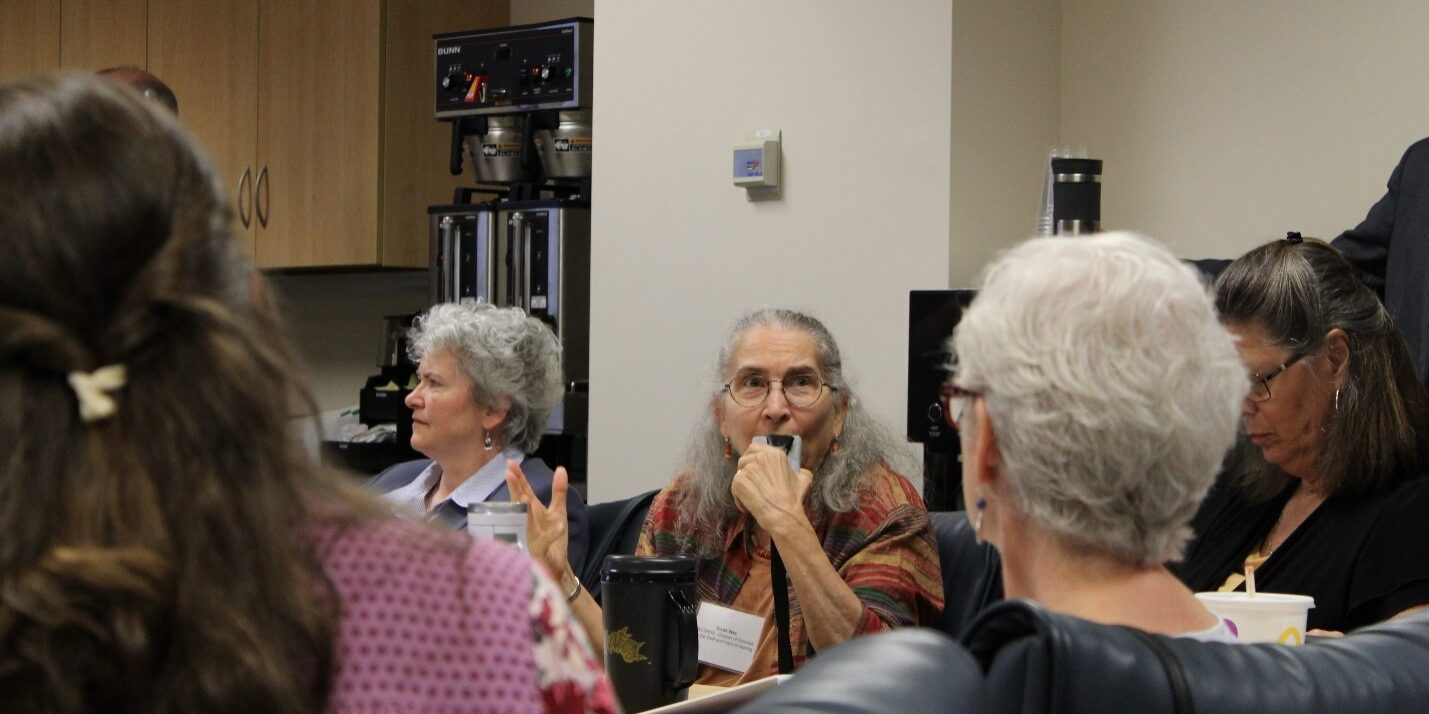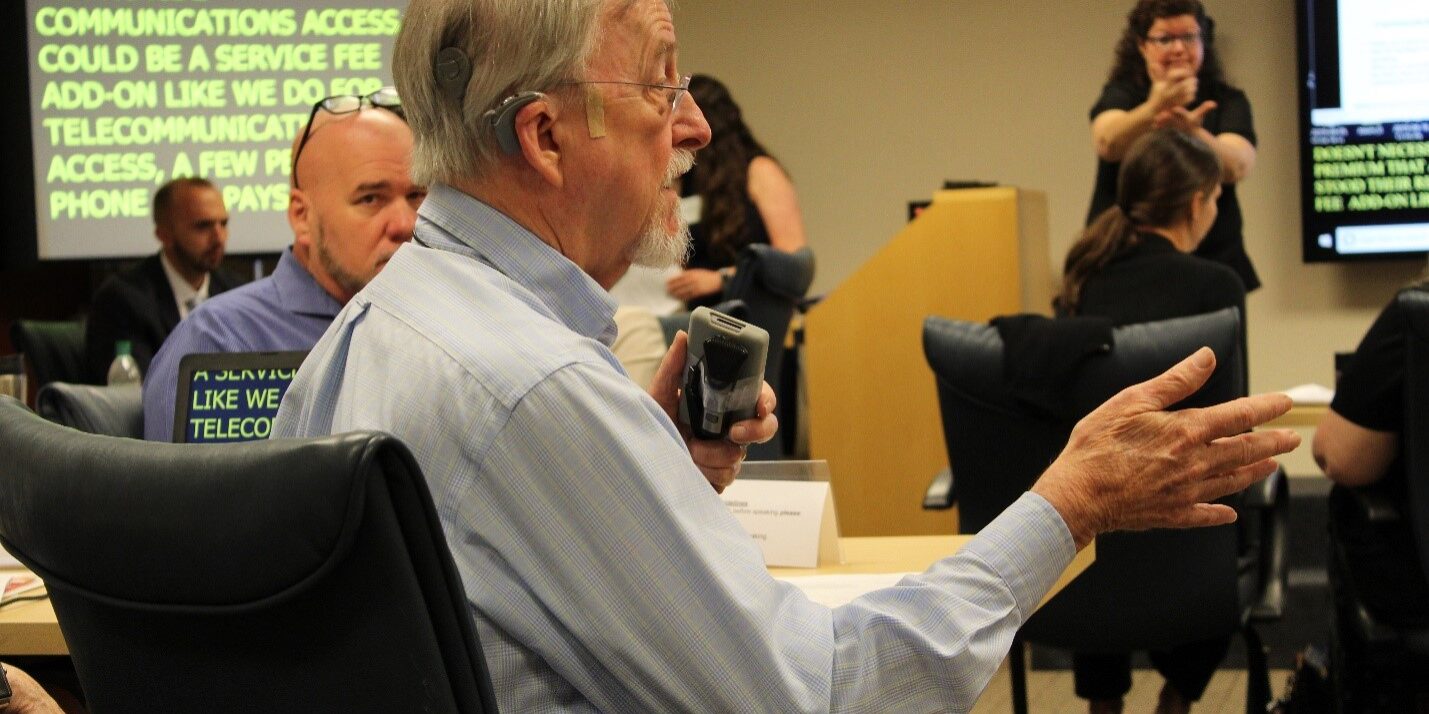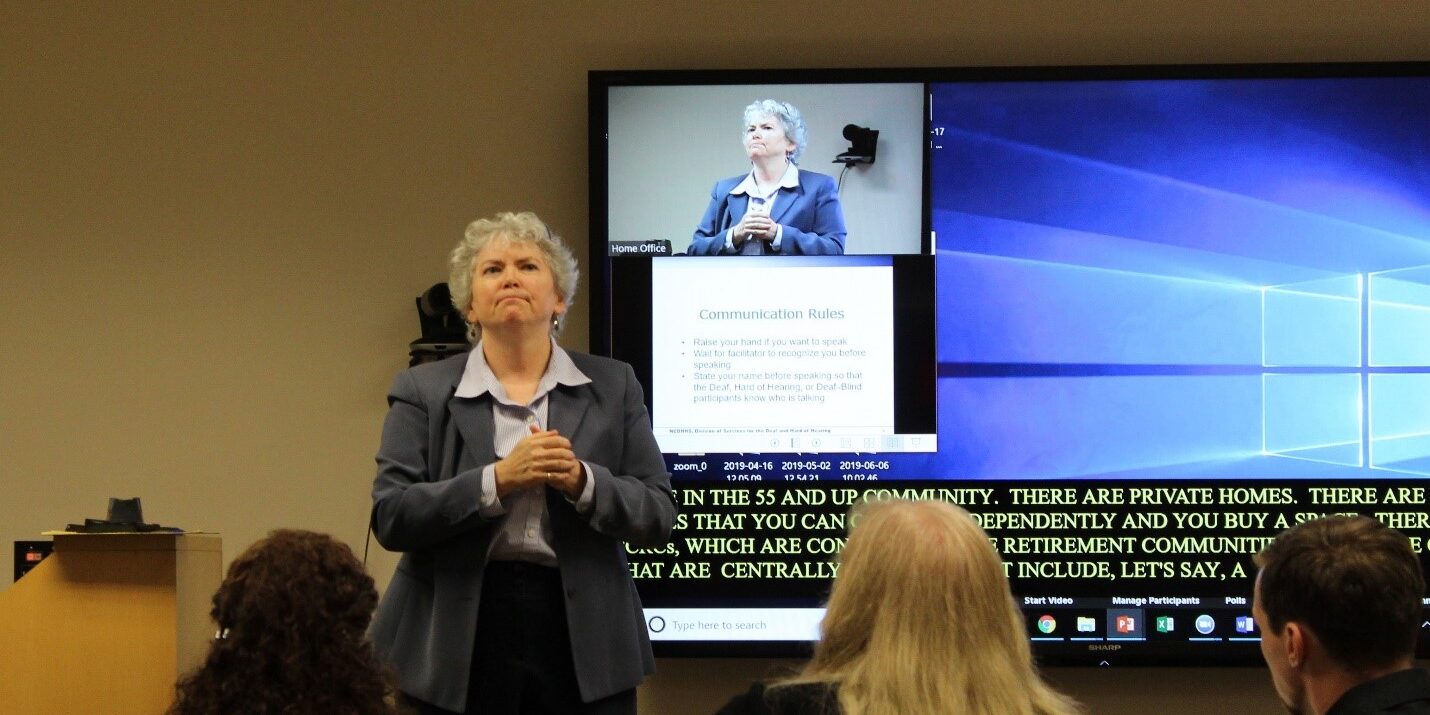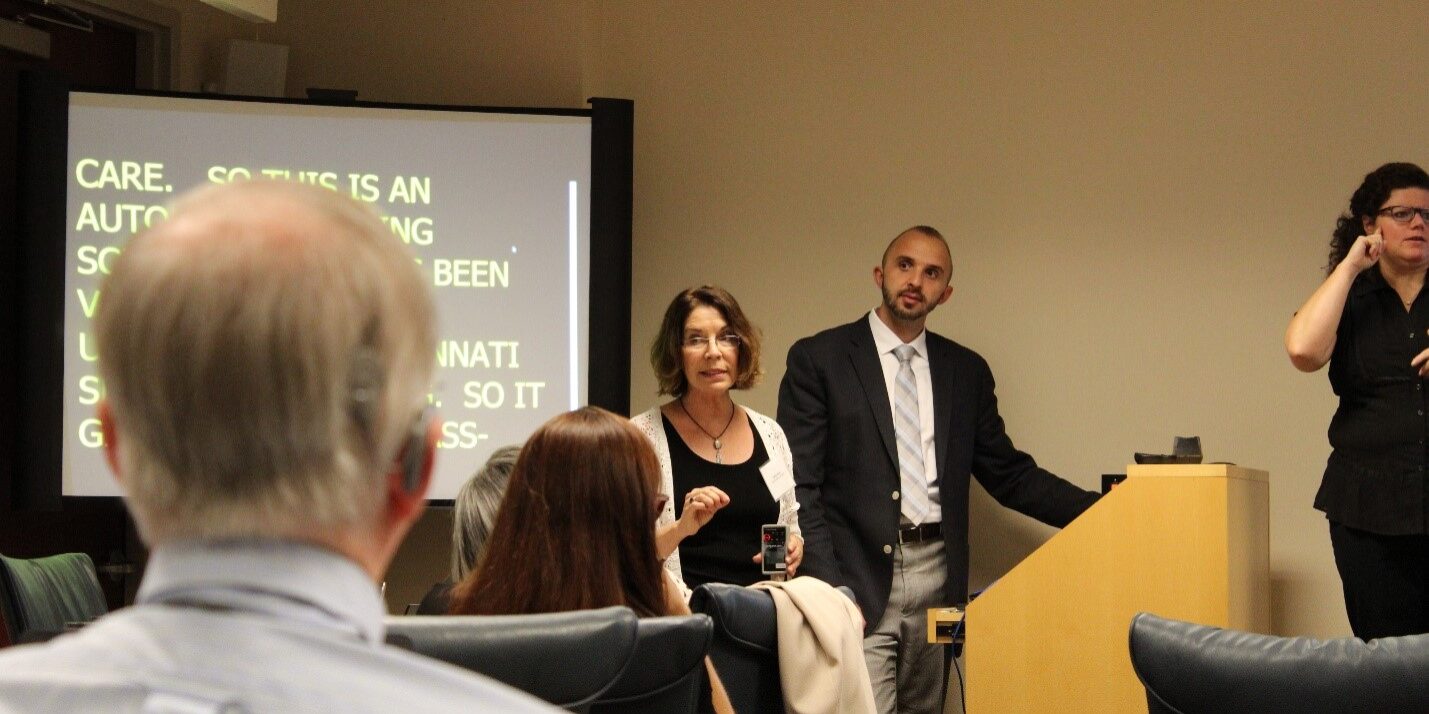

Written by Shavette Campbell
On June 17, the NCIOM’s Task Force on Health Services for Individuals who are Deaf and Hard of Hearing assembled to discuss strategies to improve access to communication services for this population.

Larissa Hanson, manager of Interpreter Services for Park Nicollet Clinics and Methodist Hospital, presented on the Minnesota Hospital Consortium (MHC). The MHC was developed to tackle a lack of access to communication services for the deaf, deaf-blind, and hard of hearing population in Minneapolis’ emergency departments and other emergent situations. Minnesota’s model was discussed at length to determine the applicability of the program here in North Carolina.
Hanson also discussed and demonstrated Video Remote Interpreting (VRI), which is often used in health care settings to provide interpreting services using a video phone call. Task force members who are deaf and hard of hearing shared their opinions and asked questions about the implications of the use of VRI in place of in-person interpreters, the translation method preferred by many deaf individuals. Discussion also covered whether VRI could be used to meet needs in rural communities in North Carolina and potential improvements to the use of VRI in health care settings, including wider bandwidth.
Jan Withers, director of the Division of Services for the Deaf and Hard of Hearing at NC DHHS, then presented on terms and conditions relating to long-term care facilities and hearing loss. Withers delved into the types of arrangements and facilities for older adults, specifically those with hearing loss, including private homes, continuing care retirement communities (CCRCs), stand-alone homes (i.e., apartments), assisted living services, and skilled nursing homes. Withers acknowledged the importance of learning how to best support older adults with hearing loss in various types of long-term care facilities.
According to Withers, CMS requirements for accessibility for this community are limited to the use of teletypewriters (TTYs) – a very outdated technology. Withers noted that the NC DHHS has established an internal workgroup to address how the department can best work within the parameters of North Carolina’s existing federal and state requirements to provide services for the deaf and hard of hearing population in long-term care settings.

Tony Davis, coordinator of Hard of Hearing Services for the Division for Services for NC DHHS, moderated a panel with Tovah Wax Ph.D., LCSW, chair of the NC Council for the Deaf and Hard of Hearing and Bill Lamb, executive director of Friends of Residents in Long-term Care. The panel discussed adult children with parents in a long-term care setting who suffered from hearing loss or had dual visual and hearing impairment. “Only 16% of people who would benefit from hearing aids wear one,” Davis said. “[Some] people are afraid to ask and… they’re [afraid] if they do ask for help, there will be retributions for that.”

Davis said people in long-term care may not be aware of their hearing loss, may not have been screened, and quite often are not aware of the accommodations and adaptations that can be made to improve their hearing in long term care facilities. Wax and Lamb shared their roles as adult children caring for parents in long-term care facilities. They highlighted their struggles with their parents’ difficulty acknowledging their communication access needs and the ability of facilities to manage proper care techniques.
After lunch, the task force reconvened for Wax’s presentation on hearing loss issues in long-term care facilities for deaf and hard of hearing residents in North Carolina. “Our statistics say that there are over 500,000 North Carolina residents over 65 who have identified hearing loss,” Wax said. Wax focused on the overarching issues of limited or no communication access and the negative impact on the population’s overall health.

To wrap up the day, Kathy Dowd, AuD, clinical audiologist and creator of The Audiology Project, provided an insightful presentation on audiology services in skilled nursing facilities.
Click here to see all the presentations from this meeting.
The next meeting of the DHH Task Force Will is on Friday, July 19.